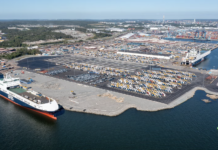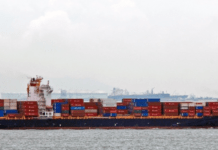
The Danish provider of research & analysis within the global supply chain industry, Sea-Intelligence has conducted a report showing that schedule reliability declined month-to-month in November by 0.6 percentage points to 33.6%.
These figures reflect schedule reliability in the range of 33% – 40% throughout the year, according to Sea-Intelligence analysts, who used figures across 34 different trade lanes and more than 60 carriers to conduct this report.

“The only continuing ‘positive’, if one should call it that, is that schedule reliability has not plummeted further,” noted Sea-Intelligence’s CEO, Alan Murphy.
In particular, schedule reliability in November was down by 16.4 percentage points on a year-on-year level.
At the same time, “the average delay for late vessel arrivals dropped down to 6.93 days, albeit still the highest figure for this month, which has been a recurring theme in 2021,” explained the Danish analysts.
Maersk was once again the most reliable carrier in November with schedule reliability of 46.3%, followed by its subsidiary Hamburg Süd with 40.4%, as seen below.

Only Mediterranean Shipping Company (MSC) had schedule reliability between 30%-40%, with five carriers, including Hapag-Lloyd, ZIM, CMA CGM, COSCO and Ocean Network Express (ONE), recording schedule reliability of 20%-30%.
The remaining six carriers had schedule reliability of under 20%, with Evergreen recording the lowest November 2021 schedule reliability of just 11.8%, according to Sea-Intelligence.
“Four carriers recorded a month-on-month improvement in schedule reliability, while no carrier recorded a year-on-year improvement in schedule reliability, with all but Maersk recording double-digit year-on-year declines,” said Murphy.








